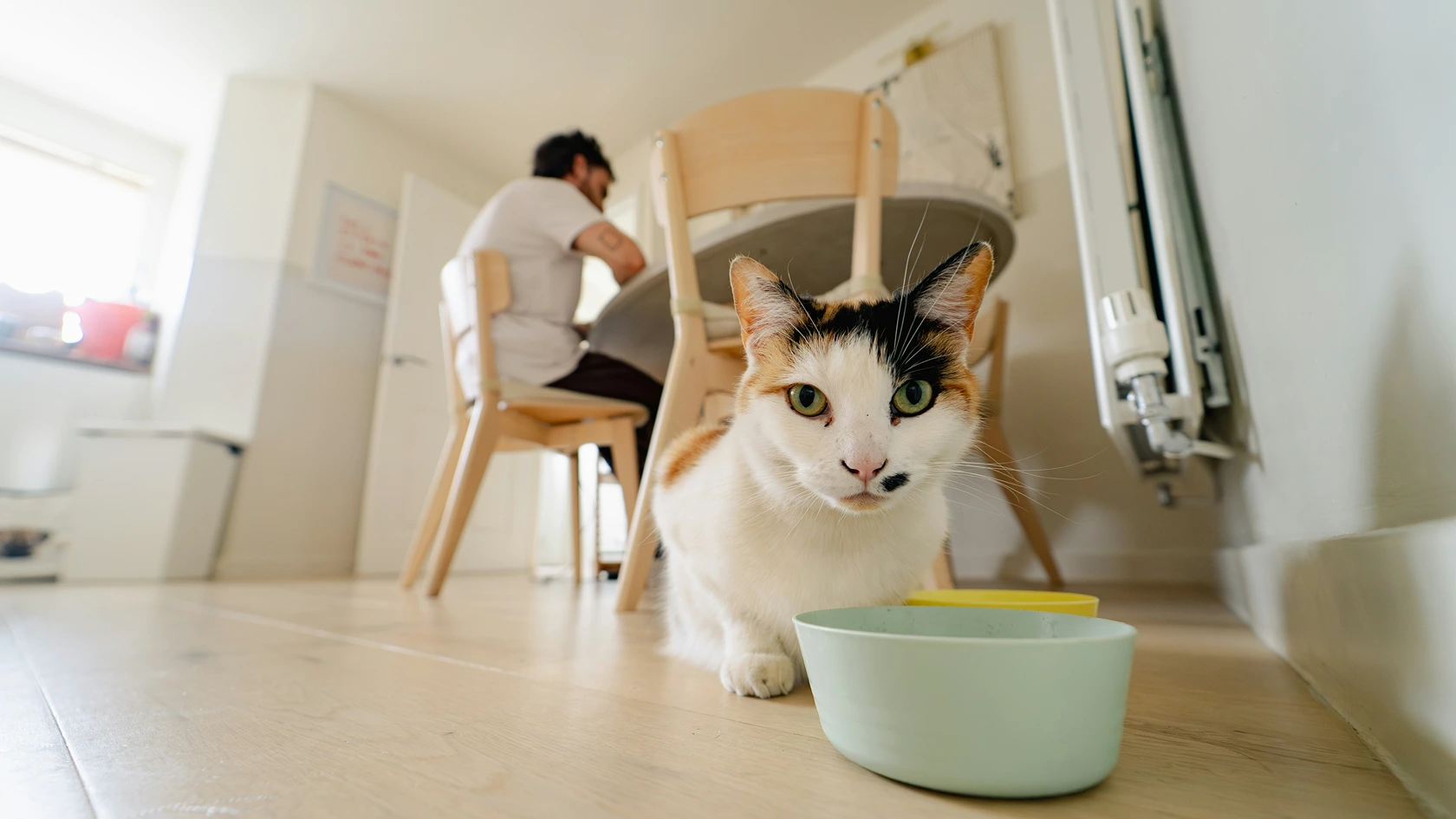TL;DR – Reasons Why Your Cat Is Not Eating
- Environmental stressors: Moving homes, new pets/people, changes in feeding schedule or food location, and hot weather can all reduce appetite.
- Medical issues: Dental pain, respiratory issues, diabetes, kidney disease, cancer, or side effects from recent vaccinations may cause refusal to eat.
- Food-related problems: Stale/expired food, allergies, sudden diet changes, dislike of texture (wet vs. dry), cold food, or poor storage can make cats reject meals.
- When to call the vet: If your cat hasn’t eaten for over 24 hours, shows rapid weight loss, has other symptoms (lethargy, diarrhea, sneezing), or shows sudden behavioural changes.
- Helping your cat eat again: Warm food to release aroma, try safe human food (with vet approval), explore different food textures, ask your vet about appetite stimulants, and reduce stress at mealtimes.
- Prevention & long-term care: Keep consistent feeding routines, schedule regular vet visits, monitor appetite/weight, enrich your cat’s environment, and watch for early signs of food aversion.
Concerned about your cat’s appetite? Reach out to us for guidance and a personalized care plan to keep your cat healthy and happy.
Notice your cat showing less interest in food? Cats are known for their eating habits, but when they suddenly stop eating, it’s hard not to worry. A skipped meal here and there may not seem like a big deal, but loss of appetite in cats can sometimes signal something deeper, ranging from simple stress to serious health concerns. Small disruptions can throw them off, other times, the reason could be medical.
Whether it’s behavioural, something in their environment, or a health issue, it’s important to notice the little signals your cat gives you. In this post, we’ll look at the common reasons your cat might not be eating, how to know when it’s time to check in with the vet, and what you can do to help them get back to their usual self.
Why is my Cat Not Eating?
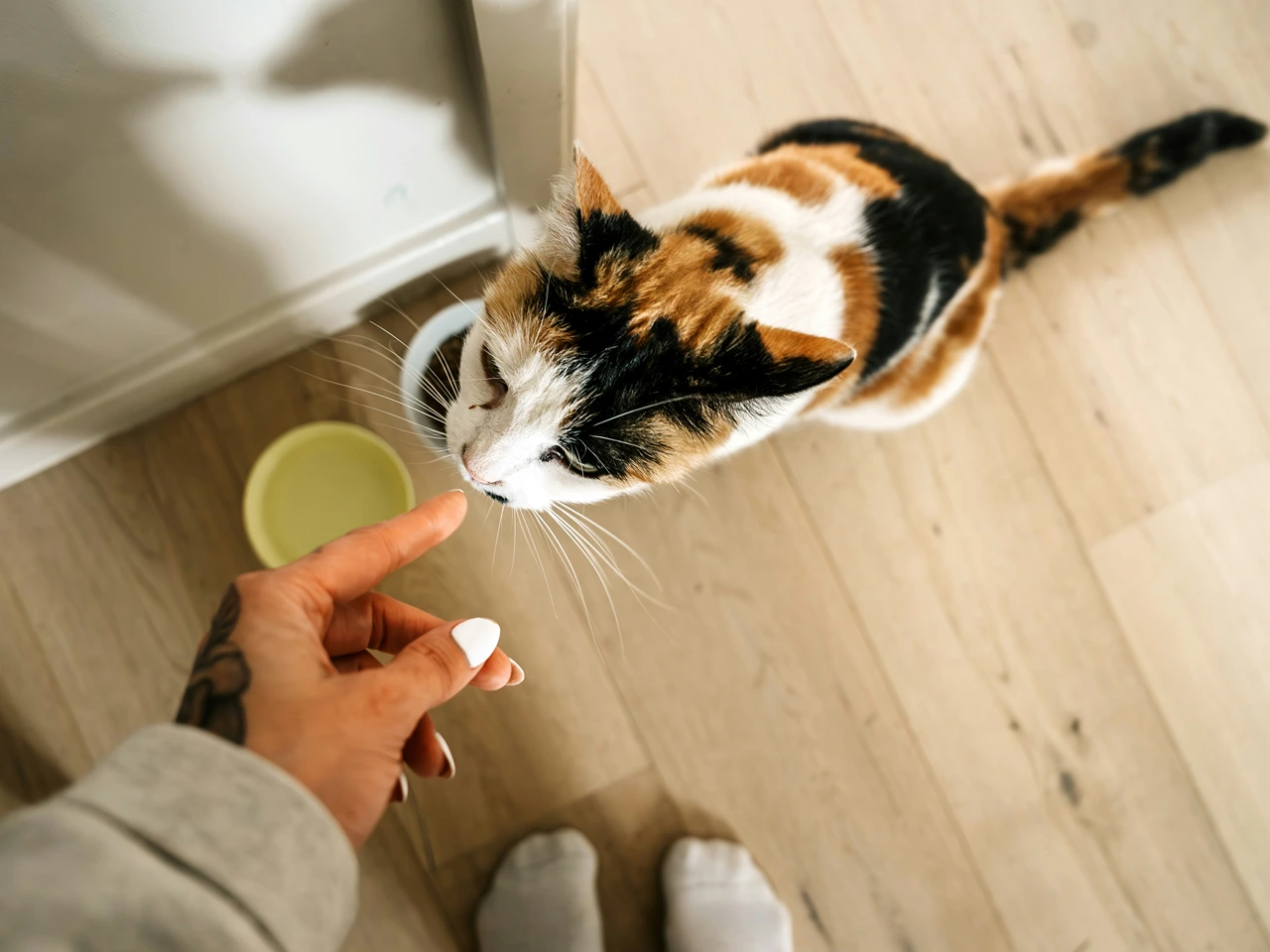
When a cat isn’t eating, it isn’t always caused by illness; sometimes, environmental factors can be an issue. Since cats are creatures of habit, even small disruptions to their routine can throw them off and affect their appetite.
Big changes like moving to a new home or introducing another pet can easily impact your cat’s comfort and sense of security. Stress from these shifts often leads to appetite loss, so it’s not unusual to notice that your cat isn’t eating as much during transitions. Even something as simple as adjusting feeding times or moving the food dish can make your cat unsettled enough to reject food. Weather and temperature can also play a role in whether your cat wants to eat. Many cats eat less in hot conditions, and if their feeding area feels too warm or uncomfortable, they may not feel like eating until the environment is cooler or calmer.
Common environmental triggers include:
- Moving to a new home
- Adding a new pet or family member
- Changes in feeding time
- Relocating the food dish
- Hot or uncomfortable weather
Medical Conditions Causing Loss of Appetite in Cats
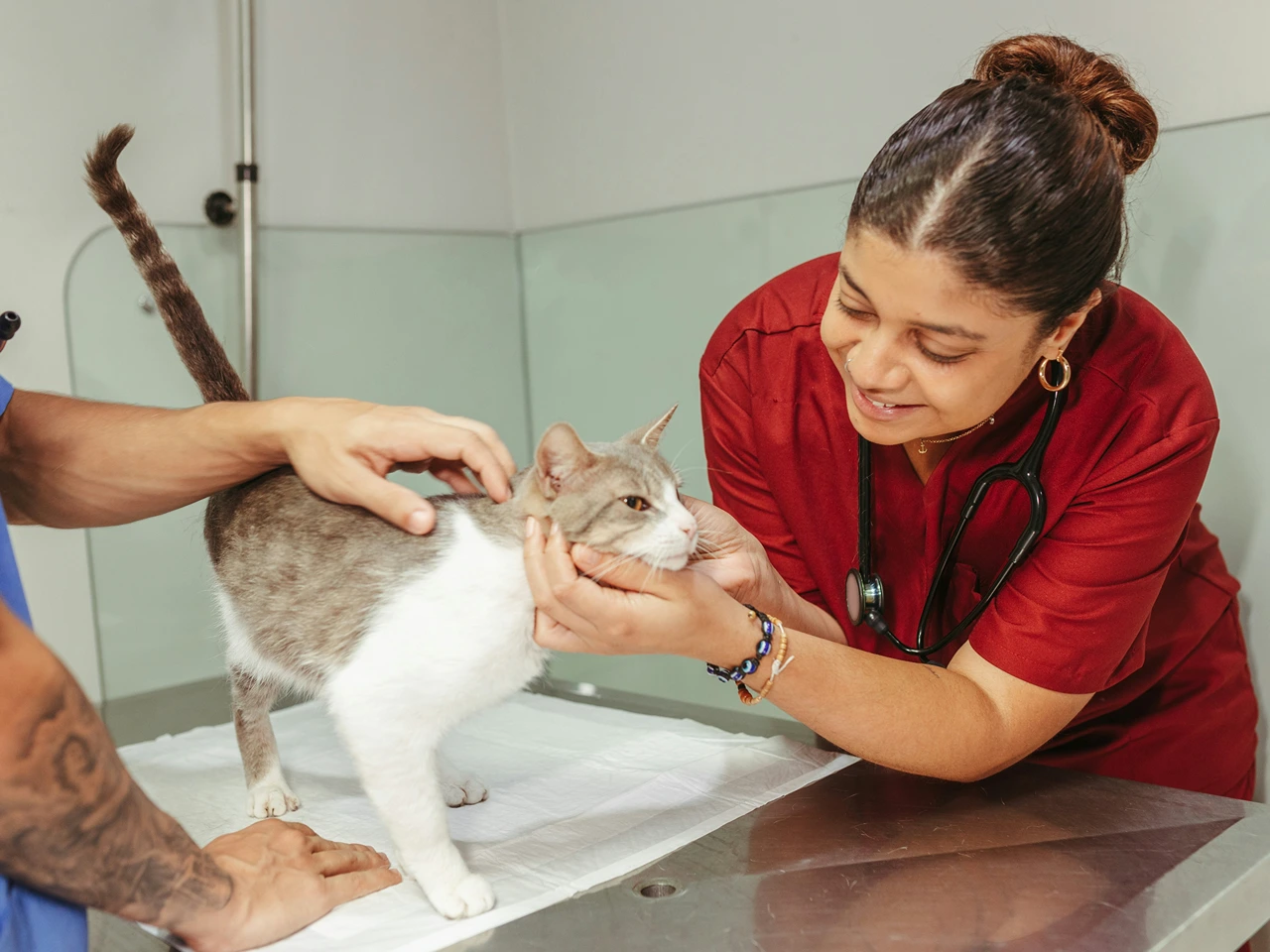
A cat's loss of appetite can feel worrying, and for good reason, it usually means your cat is feeling unwell. Sometimes the cause is simple, but other times it points to bigger health issues that can cause your cat to avoid food. Here are some medical reasons why a cat may stop eating and what they might mean.
Dental Problems
Just like people, cats get toothaches too. When chewing hurts, a cat could push food away or only nibble lightly. If you notice your cat’s eating habits changing or they’re suddenly eating less, dental pain might be the reason your cat doesn’t want to eat normally.
Respiratory Infections
When cats are stuffed up with respiratory infections, they often can’t smell their food properly. Since smell plays a huge role in appetite, a sick kitty may simply not eat because food doesn’t seem appealing.
Diabetes or Kidney Disease
Serious illnesses like diabetes or kidney disease often lead to changes in appetite. These conditions can make your cat feel weak or nauseous, so they may not eat enough to stay healthy. If you notice this happening often, it’s a sign to call your veterinarian.
Cancer
Cancer is another difficult but important possibility. It can cause your cat to feel nauseous, uncomfortable, or just too tired to eat. If a cat’s not eating for more than a day and you can’t figure out why, it’s worth checking with a vet to rule this out.
Recent Vaccinations
Sometimes, after shots, cats may develop mild side effects like sleepiness or a refusal to eat for a short time. This usually goes away quickly, but if your cat’s not eating food or water for more than 24 hours, that’s your cue to see your cat’s vet.
Food-Related Issues Affecting Your Feline
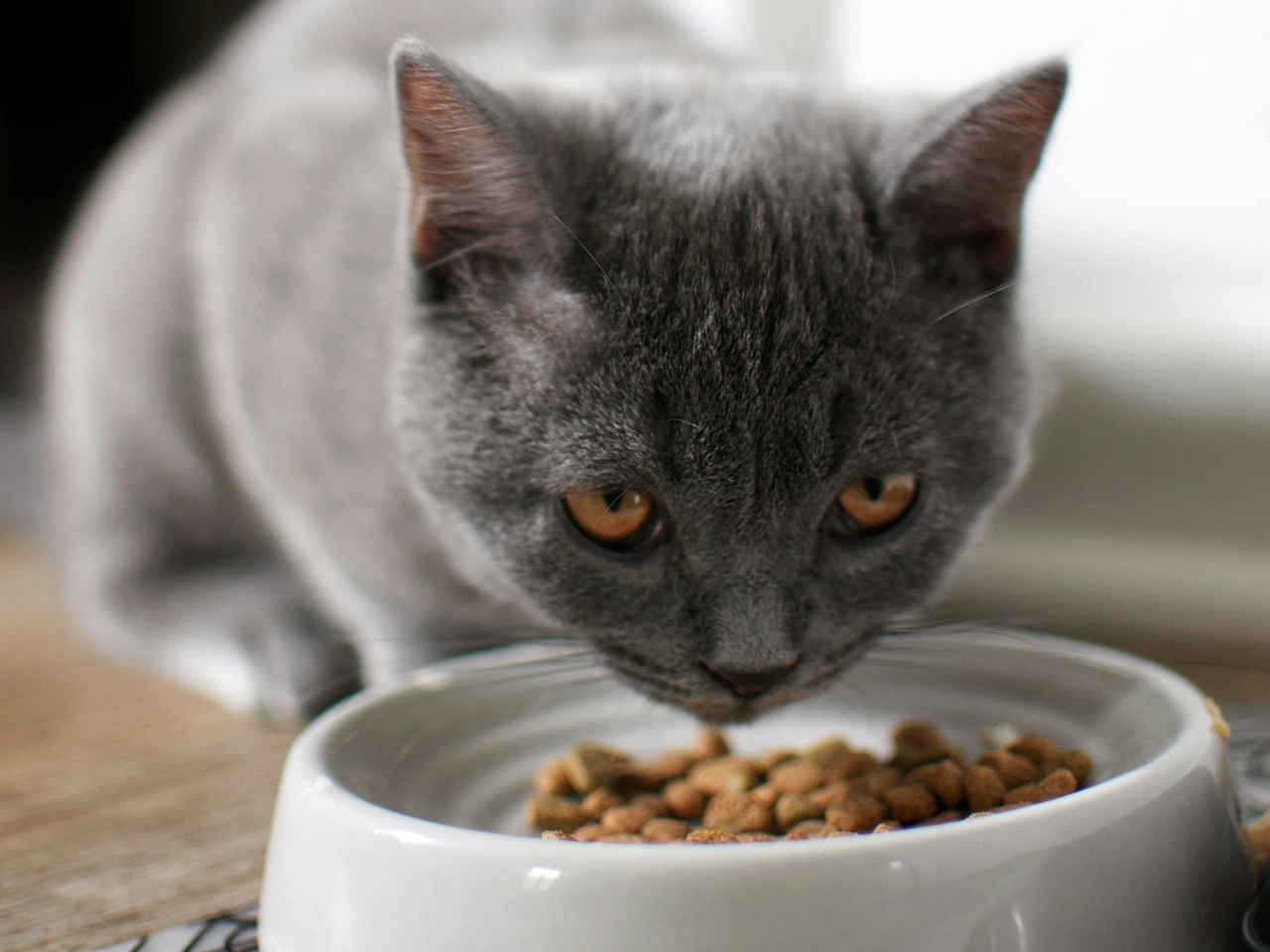
Sometimes a cat won’t eat, not because they’re sick, but because there’s something off with their food. Paying attention to these details can make a big difference in getting your cat back to eating normally.
Expired or Stale Food
Cats are sensitive to freshness, so if you’re offering food that’s past its prime, your pet may not eat simply because it smells or tastes off. Always check the date and make sure you only feed your cat food that’s stored properly.
Food Allergies or Sensitivities
Some cats develop food allergies or reactions to a particular food, which can lead to a lack of appetite or even cause vomiting. If you notice a change in your cat’s eating or they’re suddenly eating less, allergies could be the reason.
Sudden Food Changes
Switching too quickly to a new food can upset your cat’s stomach or trigger a refusal to eat. Cats often need a gradual transition between different diets; otherwise, their system may not adjust well, and you might see your feline eating less than usual.
Wet vs. Dry Preferences
Some cats are picky about texture, preferring wet food over dry food, or vice versa. If your cat won’t eat what you’ve served, it might simply be a matter of offering the type of food they actually like to eat normally.
Temperature of Canned Food
If canned food comes straight from the fridge, it might be too cold to smell or taste appealing. Warming it slightly to room temperature can make your cat more interested in eating.
Improper Storage
When food isn’t sealed or stored correctly, it loses freshness quickly, and your cat might refuse to eat it. Proper storage ensures that every meal smells inviting and encourages your cat to eat enough to stay healthy.
When to See Your Vet
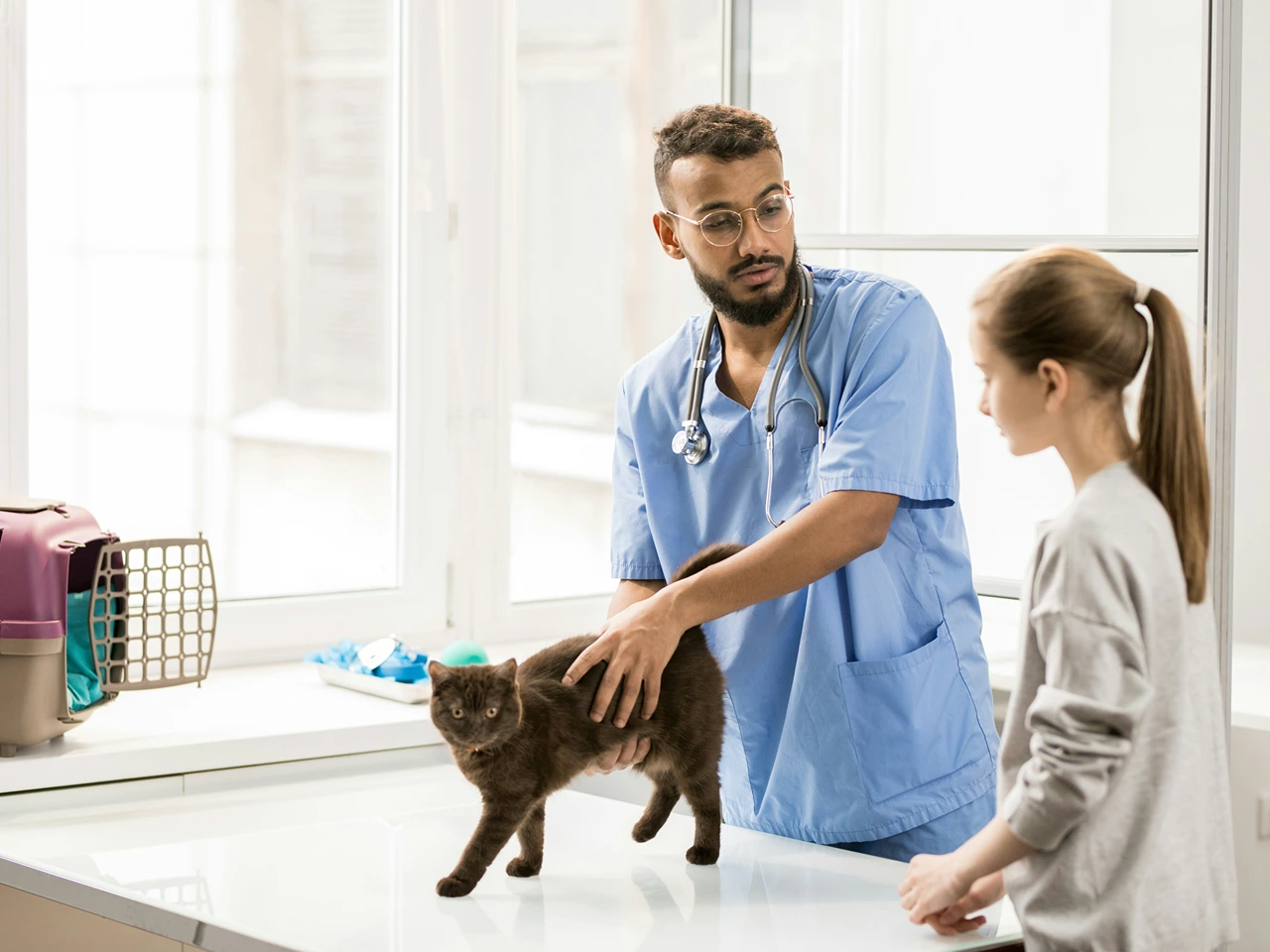
It’s not always easy to know when a loss of appetite is something minor or a real concern. A good rule of thumb: it’s always safer to check with your vet if you notice any of these signs:
- More Than 24 Hours Without Eating: If your cat hasn’t eaten for over a day, it’s time to take it seriously. A prolonged refusal to eat can quickly lead to complications, including dangerous conditions like hepatic lipidosis.
- Rapid Weight Loss: Sudden or noticeable quick weight loss is never normal. Even if your cat is still picking at meals, this could be one of the clearer signs of illness that needs professional attention.
- Other Symptoms of Illness: If an appetite loss often comes with lethargy, sneezing, diarrhea, or weakness, it points to an underlying health problem. In this case, you should call your vet right away for advice.
- Frequent Vomiting: Vomiting is not just unpleasant; it can also dehydrate your cat and worsen their condition. If your cat skips meals and pukes repeatedly, a visit to a veterinary clinic is strongly recommended.
- Behavioural Changes: Pay attention if your cat hides more, avoids social interaction, or becomes unusually restless. These symptoms of illness, combined with poor appetite, could mean your cat needs urgent care.
Getting Your Cat to Eat Again
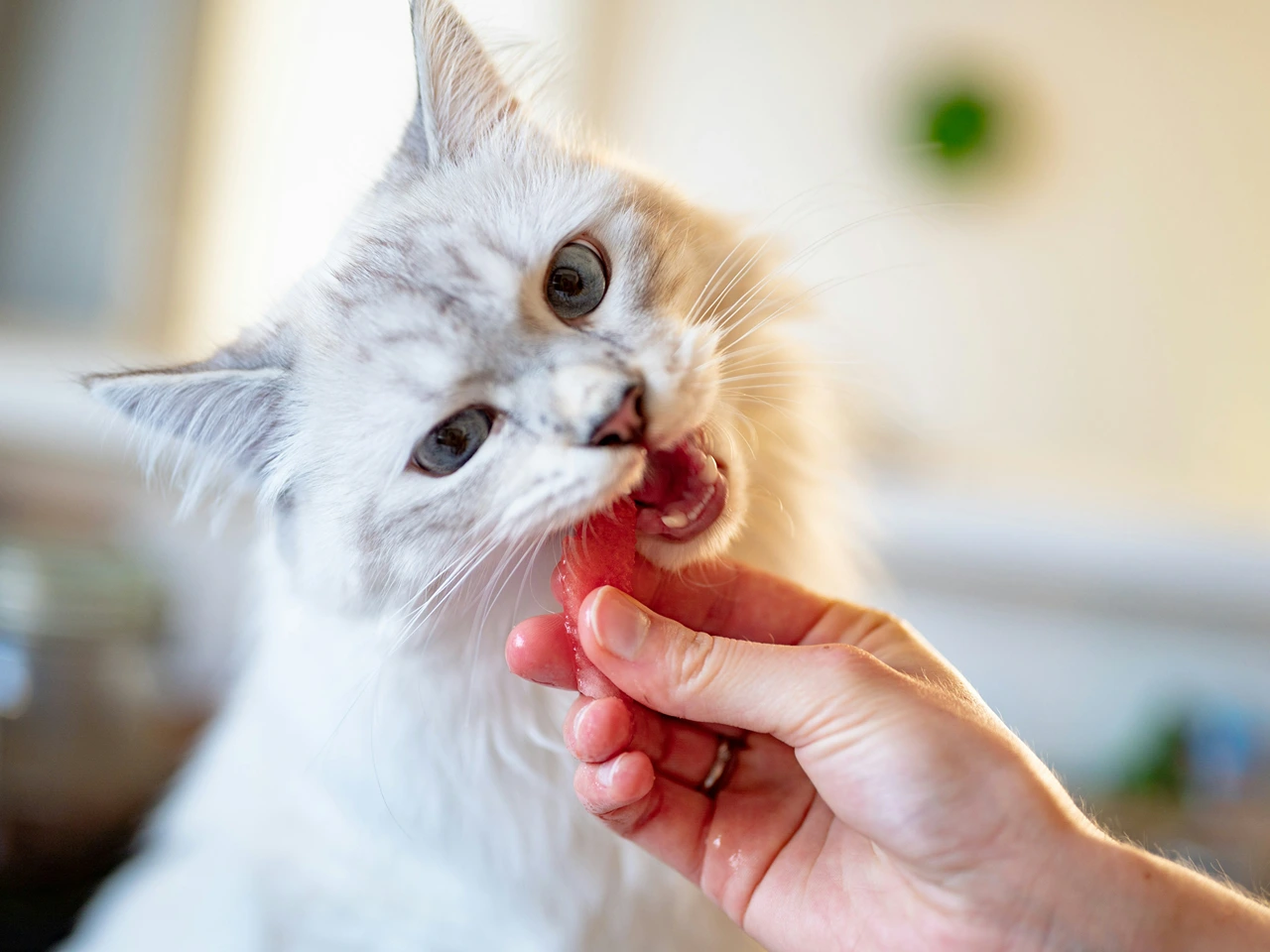
If your cat is refusing meals, there are gentle ways to help your cat regain interest in eating.
- Warm Up Their Food: Warming their food just a bit can bring out stronger smells, which makes it more inviting. Sometimes that little boost is all it takes to get a hesitant cat to start eating again.
- Offer Small Amounts of Human Food: With veterinary approval, you can give small amounts of safe human food like plain chicken or tuna. Sometimes a different flavour is enough to boost appetite.
- Ask About Appetite Stimulants: In certain cases, your veterinarian may prescribe medications to boost appetite. These should only be used when truly needed, but they can help your cat when other methods fail.
- Explore Different Food Types: Cats can be picky eaters, so trying different textures like wet food, dry kibble, or new flavours can make mealtime more tempting. Sometimes switching things up is all it takes to get them eating again.
- Never Force Food: It might be tempting, but never force food into your cat’s mouth. Doing so can stress them out or even make them refuse food more, which makes things worse.
- Create a Calm Environment: Cats usually eat better in a quiet, low-stress spot. Cutting down on noise and distractions helps them feel safe enough to focus on their meal.
Prevention and Long-Term Solutions
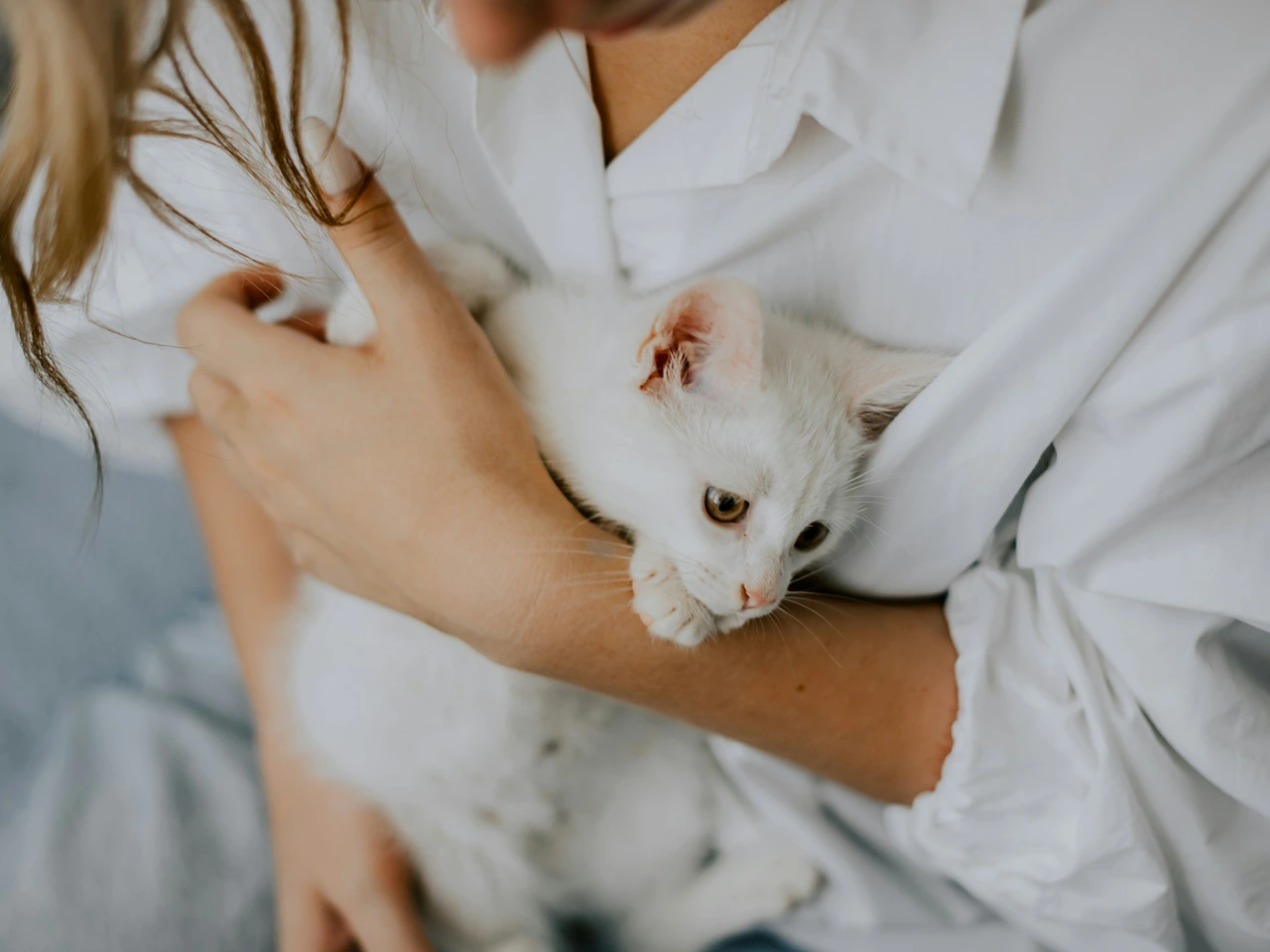
Building healthy eating habits is just as important as addressing problems when they appear. Here are some ways to support your cat’s health and reduce the chances of appetite issues in the future:
Schedule Regular Veterinary Care
Routine check-ups can catch small issues before they turn into big ones. Staying on top of vet care helps keep your cat’s diet and overall health in good shape.
Maintain Consistent Feeding Routines
Cats do best with routine. Feeding them at the same times every day gives them structure, keeps stress down, and helps prevent food aversion.
Keep an Eye on Your Cat’s Health
Even small changes in appetite, behaviour, or litter box habits can be a warning sign. Watching your cat’s overall health helps you spot problems early, before they become bigger issues.
Provide Environmental Enrichment
Boredom and stress can affect appetite. Toys, scratching posts, and playtime help keep your cat mentally stimulated, which in turn supports healthy habits of eating.
Watch for Early Signs of Food Aversion
If your cat begins to avoid meals or seems uninterested in certain foods, pay attention. Early recognition of food aversion allows you to adjust before it becomes a lasting problem.
Track Your Cat’s Weight Consistently
Checking your cat’s weight regularly helps you see if they’re staying the same, gaining, or losing. Even small changes can show appetite problems before they become obvious. If your cat suddenly changes how much they eat, acting early can make a big difference. Always ask your vet about specific concerns; only they can determine whether an underlying condition is responsible and recommend the right treatment.
Final Thoughts
If your cat suddenly stops eating, don’t just brush it off as them being picky. Sometimes it’s just stress or a change in their surroundings, but if they keep avoiding food, it could be a sign of a health issue that needs checking out. Reach out to your vet, they can figure out what’s going on and suggest the right treatment.
Pay close attention to your cat’s behaviour, habits, and overall energy levels. With the right care and timely action, you can support your cat’s overall health, comfort, and long-term well-being.
Frequently Asked Questions
What medical conditions cause a cat to eat less?
Some health problems directly affect appetite and make eating difficult.
Dental Pain: Tooth decay or gum disease often makes chewing uncomfortable, leading your cat to eat less or reject harder foods.
Kidney or Liver Disease: Serious conditions like these cause nausea and make cats lose their normal desire to eat.
Diabetes: This long-term condition can upset a cat’s normal energy balance, which often leads to reduced appetite or refusal to eat properly.
Cancer: Tumours can create discomfort or nausea, making cats avoid food altogether.
Recent Vaccinations: Mild appetite loss for a day is common after shots, but no food for more than 24 hours requires checking with a vet.
Why did my cat stop eating suddenly?
A sudden drop in appetite can happen because of stress, changes in their environment, or health problems.
Stress or Environmental Change: A cat may stop eating when big changes happen, such as moving homes or introducing a new pet, because stress often disrupts their appetite.
Temperature Effects: Hot or humid conditions can cause cats to not eat temporarily until the environment feels more comfortable.
Behavioural Issues: Even minor shifts like moving the food bowl or adjusting schedules can lead to appetite refusal.
Respiratory Illnesses: When a cat is congested and cannot smell food, meals may not be appealing, which explains why a cat is not eating normally.
Pain or Discomfort: Issues like dental pain or hidden injuries can quickly discourage a cat from eating much.
When should I call a veterinarian if my cat isn’t eating?
It’s best to act quickly when food refusal lasts too long or other symptoms appear.
Over 24 Hours Without Food: If your cat has avoided food for more than 24 hours, emergency veterinary attention may be needed to prevent complications.
Severe Weight Loss: Sudden weight drops signal that your cat is not eating enough to stay healthy and requires professional evaluation.
Vomiting or Diarrhea: Digestive distress alongside appetite loss can point to an illness that must be checked quickly.
Signs of Illness: If your cat seems weak, lethargic, or is feeling sick while refusing food, don’t delay contacting your vet.
Behavioural Shifts: Hiding, restlessness, or lack of interaction paired with poor appetite should prompt a visit to a veterinarian if your cat shows no improvement.
How can I help encourage my cat to eat again?
There are safe ways to make food more appealing and reduce stress around meals.
Warm the Food: Slightly heating meals enhances aroma, making food more appealing to cats that may not be eating well.
Offer Different Textures: Switching between wet, dry, or softer foods helps if your cat is eating due to preferences or aversions.
Safe Human Food: With veterinary approval, offering plain chicken or tuna can tempt cats back to eating.
Use Appetite Stimulants: In some cases, a vet may prescribe stimulants if a cat truly needs to eat but refuses food on its own.
Calm Feeding Environment: Providing a quiet, safe space often reduces stress and helps your cat eat comfortably again.
What treatments are available if my cat still refuses to eat?
If your cat is not eating at all, medical treatment can provide necessary support.
Veterinary Assessment: A veterinarian will first check if an underlying condition explains why your cat is not eating.
Appetite Medication: Prescription medications can sometimes restart a cat’s appetite safely under professional guidance.
Fluid Therapy: If dehydration is a risk, fluids may be given to support your cat until appetite returns.
Feeding Tube Support: In severe cases, a feeding tube may be necessary to ensure your cat receives the nutrition they need to eat daily.
Ongoing Monitoring: Continued veterinary visits are important to check if your cat is recovering or still not eating much.

